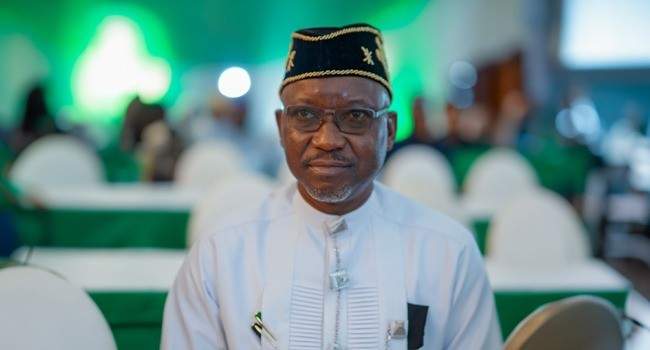The insufficient number of Compressed Natural Gas (CNG) filling stations poses a significant challenge to the adoption of CNG-powered vehicles. JIDE AJIA delves into the obstacles hindering the Nigerian Federal Government’s initiative to promote CNG usage for vehicles across the country.
President Bola Tinubu’s approval of the Presidential Compressed Natural Gas initiative aimed at introducing over 11,500 new CNG-enabled vehicles and 55,000 conversion kits for existing petrol-dependent vehicles signifies a crucial step towards enhancing local manufacturing, assembly, and job creation, aligning with governmental directives.
However, stakeholders in the petroleum and transport sectors express concerns that the absence of necessary CNG stations impedes the initiative’s progress, delaying the widespread adoption of CNG-powered buses.
Stakeholders’ Perspectives
An official from the Nigerian Upstream Petroleum Regulatory Commission highlighted ongoing efforts to facilitate the establishment of CNG stations while emphasizing safety standards and fair competition to ensure consumer protection and market efficiency.
Energy analyst and CNG expert, Dr. Amina Yusuf, emphasized the potential of CNG in addressing environmental and economic challenges by offering cleaner emissions and promoting energy security through domestic availability.
Despite mixed reactions from users in cities like Abuja, Lagos, and Ogun States, individuals and businesses appreciate the cost savings and environmental benefits associated with CNG. However, concerns persist regarding the accessibility of refilling stations and feasibility of the transition.
Impact of Gas Station Shortage
Drivers, commuters, and gas marketers emphasize the urgent need for a comprehensive network of CNG stations to support the practicality and sustainability of CNG-powered vehicles. Although Nigeria boasts abundant natural gas reserves, the lack of adequate infrastructure hampers the viability of CNG usage.
While some like commercial car driver Tanimola Ibrahim and business owner Chidinma Okafor praise the benefits of CNG in terms of cost savings and environmental impact, others like commuter Hassan Sani acknowledge the gradual increase in CNG refuelling stations but stress the importance of further expansion for widespread adoption.
Truck driver Musa Idris advocates for increased awareness and collaboration between the government, private sector, and gas marketers to address challenges related to access and availability of CNG stations, particularly for long-haul transportation needs.
Partnerships for Expansion
The Nigerian National Petroleum Company Limited’s collaboration with NIPCO Gas Limited to construct 35 CNG stations nationwide signifies a significant step towards providing motorists with a cheaper and cleaner alternative fuel source in compliance with governmental directives.
Upon completion, these stations are expected to cater to a large number of vehicles daily, reducing transportation costs and fostering sustainable economic growth. The planned phases of station deployment aim to support both intra-city and inter-city transportation needs, enhancing accessibility and affordability for CNG users.
Efforts by NIPCO Gas Limited in operating existing CNG stations and converting thousands of vehicles highlight the industry’s commitment to driving the success of the CNG initiative and its positive impact on the national economy.
Future Prospects
President Tinubu’s pledge to invest N100 billion to acquire CNG-powered buses demonstrates the government’s commitment to promoting sustainable and cost-effective transportation solutions amidst rising petrol prices.
As the debate between Petrol (PMS) and CNG continues, with petrol prices varying across different regions, the push for CNG adoption remains essential for environmental sustainability, energy security, and economic resilience in Nigeria.
The Rise of Compressed Natural Gas (CNG) in Nigeria: A Cheaper and Greener Future Ahead
The cost of Compressed Natural Gas (CNG) in Nigeria is set to revolutionize the fuel industry, offering a more affordable option compared to Petrol (PMS) and Diesel. According to the CNG Initiative, the projected price of CNG is N250 per liter, significantly lower than the current prices of PMS and Diesel.
Nagendra Verma, the Managing Director of Nipco Gas Limited, highlighted the cost benefits of CNG during an interview on the “Energy and You” series aired by the Nigerian National Petroleum Company Limited. In Abuja, where petrol is priced at N620 per liter, CNG for vehicles costs as little as N213 per standard cubic meter (scm), making it a more cost-effective choice.
Verma emphasized that CNG prices for vehicles using diesel in Abuja are around N219 per scm, making it approximately 35% cheaper than traditional fuels. Nipco Gas, with its 14 years of experience in operating auto-CNG stations and converting over 7,000 vehicles to CNG, is leading the way in promoting this eco-friendly fuel alternative.
The availability of CNG in Nigeria is plentiful, with Verma noting that while there are no shortages, transportation infrastructure for gas remains a challenge. However, developments like the Ajaokuta-Kaduna-Kano pipeline project are set to enhance the transportation network for natural gas across the nation.
Stakeholders are advocating for the expansion of CNG infrastructure nationwide, with a focus on safety standards, fair competition, and public-private partnerships. It is crucial for the government to raise awareness about the benefits of CNG, establish refueling stations in key cities, and incentivize its adoption to support local industries.
Investing in CNG infrastructure not only promotes economic growth but also aligns with environmental sustainability goals. By embracing CNG, Nigeria is paving the way for a greener and more cost-effective future in the energy sector.
